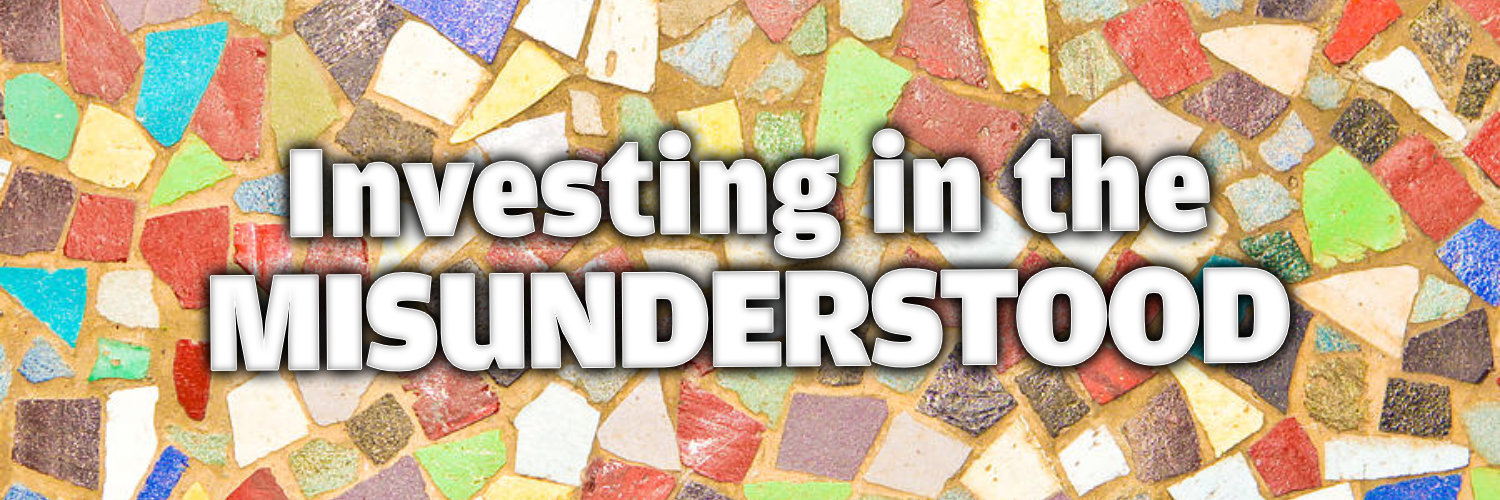
Shelf Life
My intention is to hold stocks forever, but the harsh reality is every stock has different shelf life.
If your goal is to achieve maximum capital gains, then your intention with every purchase should be to hold for years.

A full-time private microcap investor recently commented on our forum:
I’m quite curious how you all account and measure the relative performance of variables that can be quantified like earnings, balance sheet etc, vs intangibles like quality of management, appointments to the board etc. On balance, I put more weight on things that can’t be objectively measured.
The comment forced me to introspect a bit. First, I’d like to make a topical observation. The current market environment can play a role, at least initially, on how much qualitative you need to apply to your investing. In really good markets it’s all but impossible to find great companies trading at cheap TTM fundamentals so you have to look deeper into the qualitative. In bad markets, known great businesses can trade very cheap so you don’t really have to think that deeply into the qualitative.
Drilling down further, I’m reminded of Paul Lountzis’s top four reasons investors don’t conduct qualitative analysis:
An investor’s time frame (months vs years) and individual position sizing (small vs big as a % of overall portfolio) likely play a significant role in how much an investor is going to dig below the quantitative surface. If you are going to sell a company because they earned $0.01 EPS less this quarter or next quarter, then you aren’t really going to be diving into the long term sustainable qualitative factors of the business as much as someone that is truly making three to five-year investment decisions.
If your goal is to achieve maximum capital gains, then your intention with every purchase should be to hold for years. If you are going to hold for years, you need to put in the work to understand the qualitative.
For my investment style, it’s the quantitative and qualitative factors that initially attract me to the company. I need to see a fundamental reason and quality reason to be interested in an investment. Shortly after making an initial investment, the focus shifts significantly to the qualitative factors because it’s the only way to build conviction for the long-term. What makes the business special and why will it continue to be special? This is what qualitative elements answer.
If it were mostly the quantitative factors, I would never be able to hold onto something long enough to capture the big gains. What do I mean by this? If your aim to is hold a great business for a long time, you are going to have to get used to holding a business that isn’t always “cheap”. This is excruciatingly hard for many value investors who only believe cheap = value. I don’t like to use the word cheap to define value, I would rather use the word misunderstood = value.
In general, I’m looking for businesses, management teams, and opportunities that are misunderstood by the market place. Perhaps it’s the business quality that is misunderstood. Perhaps it’s the quality level of management that is misunderstood. Perhaps it’s the culture, strategy, or intellectual property. It could even be perceived negative events that have occurred, and shareholders are selling, and they are wrong. A majority of investors are focusing on the wrong thing(s). Whatever it may be, misunderstood, represents a big opportunity for investors that are willing to put in the work to piece together reality.
Misunderstood attributes often show up in the qualitative insights you uncover. They are like little colored tiles you find when researching a company. Sometimes the individual tiles mean nothing and sometimes they form a beautiful mosaic. The latter can be so exhilarating, and I’m sure many of you have had it occur at least once. You had differential insights that were spurred on by your past experiences that allowed you to see what others didn’t.
The more experience you gain the quicker you get at recognizing when you don’t need to evaluate a company. We are all impressed by our filters and how in 30 seconds an astute investor can scan an annual report and know whether the business is worthy of further diligence. We all have these pre-conceived “deal killers” built into our System 1 processes (see Thinking Fast and Slow).
Insiders own <10% of company = Bad
Insider Selling = Bad
Above Average Management Salaries = Bad
Gross Margins <50% = Bad
Revenue Growth <20% = Bad
Debt = Bad
Bad
Bad
Bad
I look at hundreds of ideas per year, and others like Brent Beshore look at thousands of ideas per year. Our past experience affords us the ability to make quick and fast judgements, but it’s also these System 1 decisions that can shield us from misunderstood situations.
Let me give you an example:
Six years ago, I was researching a company that had many great characteristics. All but one thing, which coincidentally was the one thing that scared off many others. The CEO sold stock every month, $5,000-$6,000 per month, out of a $3 million position size. It was annoying to see this every month. I know because it annoyed me. When I met with the CEO in person, after having a couple calls, I had to ask him about it.
He told me that his father had health issues throughout his life that limited his abilities and output during his working years. He said that his father was a great person, “One of those people that should have gotten more out of life than he did”. His father didn’t have a lot of money. He was receiving assistance from the government but didn’t have anything left over after paying bills.
The CEO (son) and his wife made the decision they would honor his father by giving him some extra cash every month, so he could enjoy the sunset of his life. The CEO himself was getting paid $220,000 and had two teenage boys and stay at home wife, so he didn’t have a lot of disposable income and was all in on the company.
And this is the part I remember most because it was a great line. The CEO said, “If the choice is between me being slightly wealthier in the future or honoring my father today, I’ll choose the latter.”
The CEO told me he received a lot of complaints from investors about insider selling, but few asked him why. Most investors saw the insider selling, made a quick judgement that he was just another greedy, self-indulgent public CEO, and passed. Few dug deeper to find the truth.
I’m embarrassed to say I never did buy the stock, and it’s up 1,400% since then. It’s amazing how a great business can cure a lot of ills or even overcome a few misperceived negatives, especially misunderstood ones.
I’m interested in finding businesses, management teams, and opportunities that are misunderstood by the market place. The quantitative is what might attract you to invest but it’s the qualitative that will keep you invested. Dig below the surface to truly understand the businesses you own and the people that run them. Don’t let your past experiences and fast System 1 thinking blind you to misunderstood situations. Dig deeper. Seek truth.
===> Interact and learn with 250+ of the best microcap investors on the planet. [Join Us]
MicroCapClub is an exclusive forum for experienced microcap investors focused on microcap companies (sub $500m market cap) trading on United States, Canadian, European, and Australian markets. MicroCapClub was created to be a platform for experienced microcap investors to share and discuss stock ideas. Since 2011, our members have profiled 1000+ microcap companies. Investors can join our community by applying to become a member or subscribing to gain instant view only access. MicroCapClub’s mission is to foster the highest quality microcap investor Community, produce Educational content for investors, and promote better Leadership in the microcap arena. For more information, visit http://microcapclub.com and https://microcapclub.com/summit/
Get Alerted to our Next Educational Blog Post

My intention is to hold stocks forever, but the harsh reality is every stock has different shelf life.

How does a business get a premium valuation when they sell a commodity?

It's often how you react (or don't) to the same situations that shows you how much you’ve grown.